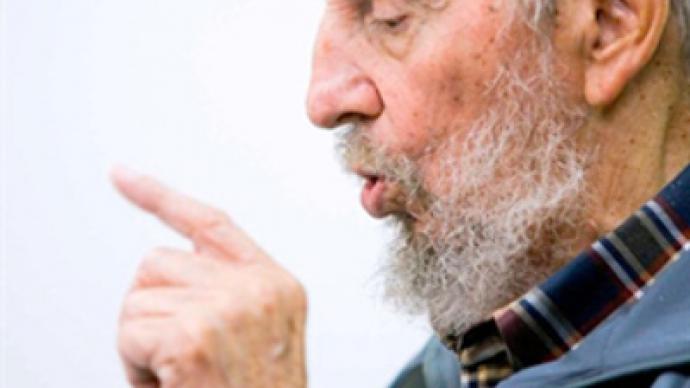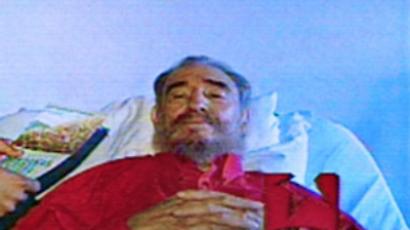Washington policy may result in nuclear war – Comandante Castro

In his first televised appearance in recent years, former Cuban leader Fidel Castro warned that US policies on Iran and North Korea may result in a nuclear war.
Following four years out of public view, the 83-year-old Comandante emerged from the shadows to discuss the global situation in an interview with "Mesa Redonda" ("Round Table") – a Cuban daily talk show – on Monday.
The leader of the Cuban revolution believes that the policies that Washington and its allies are leading on Iran and North Korea may result in the beginning of a world nuclear war, Itar-Tass writes.
Castro noted that earlier he had thought the global conflict would be sparked because of the Democratic People's Republic of Korea (DPRK). However, now he believes that it is a US and Israeli attack on Iran that could trigger a war.
The former Cuban president also expressed disappointment over Moscow and Beijing’s failure to veto a UN Security Council resolution imposing new sanctions against Tehran over its nuclear program. The new package of economic sanctions was approved on June 9 with the support of twelve out of fifteen members of the council; Turkey and Brazil voted against while Lebanon abstained.
The Cuban ex-president warned the US of harsh consequences if it attacks the Islamic Republic.
“They would face a terrible resistance there,” he warned, adding that it would be completely different from what the US encountered in Iraq and the conflict would turn nuclear.
Iran "has been preparing [for military conflict] for 30 years, conducting industrial development, acquiring aircraft, radars, antiaircraft weapons… They bought all the aircraft they were able to buy," Castro said, RIA Novosti reports. According to Castro, all Iranian men aged 12 to 60 undergo military training and the country posses both air and marine military forces. The "Islamic Revolutionary Guard Corps" alone accounts for a million of people, he noted.
Despite not being seen in public for quite a while, the Cuban politician kept an eye on what was happening around the globe and has shared his thoughts on these events in a series of articles “Reflections of Fidel.” Earlier this month, commenting on the issue of US-Iranian tensions, he wrote: “Neither of the two parties will give in: one, due to the pride of the powerful, and the other, out of resistance to the yoke and the capacity to fight, as has occurred so many times in the history of humanity.”
Castro said there is no doubt “the people of Iran, a nation of millenary traditions, will defend themselves against the aggressors.”
“It is incomprehensible that Obama can seriously believe that they would bow down to his demands,” Granma International news outlet cited him as saying.
A serious conflict that could be triggered by an American attack on Iran would be just the beginning. Speaking on Monday, the Cuban former leader predicted that if that happened, the DPRK would not hesitate or wait to follow in Iranian footsteps but would start a war itself – a nuclear war.
The Comandante did not hesitate to point his finger at the US for sinking the South Korean Warship Cheonan and later accusing the DPRK in the incident.
"The South Korean Navy was performing a maneuver with its ally, the United States… It is hard for the US to admit that they were the ones who sank South Korea's corvette," he said, RIA Novosti cites.
While the Comandante’s harsh criticism of the US is nothing new, his ability to appear on television and to comment on the world’s hottest issues awakened lively interest among the public. Castro took control of Cuba in 1959 and remained the republic’s leader for almost half a century till 2006, when he underwent intestinal surgery and delegated power to his younger brother Raul, who became an official head of the state in 2008.
Natalia Makarova, RT













